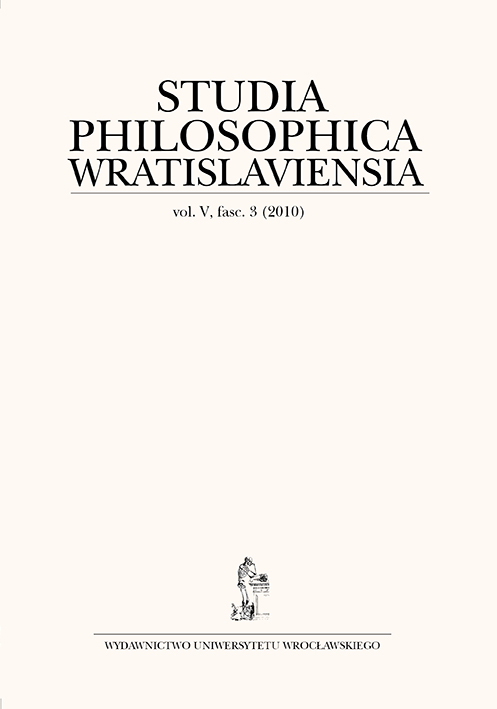

Artykuły

Virtue Ethics Fifty Years and Twenty Three Centuries Later. Assumptions, Limitations, Perspectives
The paper is a discussion of major issues in the contemporary project of virtue ethics in relation to the eudaimonia ethics of antiquity. In the first part, the author delineates the causes of the emergence of this movement, focusing mainly on a critique of the ethical theory, relativism and emotivism, and a critique of the reduction of the moral subject to an abstract decision-making self. In part two, the author discuses the most significant elements of Greek eudaimonism, with particular emphasis on its metaphysical assumptions. Part three is focused on the flaws of that project, and especially on the concept of the subject and the existence of the good as an objective value, and on the concept of teleologism. In the fourth part, the author attempts to point out to possible ways to avoid the above pitfalls. He attaches a particular significance to, first, an adoption of the concept of virtues as dispositions relating to emotions understood, in agreement with modern cognitive psychology, as cognitive-affective state; second, a development of Aristotle’s view of rhetoric as public discourse allowing an explanation of how a community shapes its axiological-normative sphere. It seems that this direction of research promises a revival of modern virtue ethics, visibly stagnant fifty years after the publication of G.E.M. Anscombe’s famous paper, “Modern Moral Philosophy”.